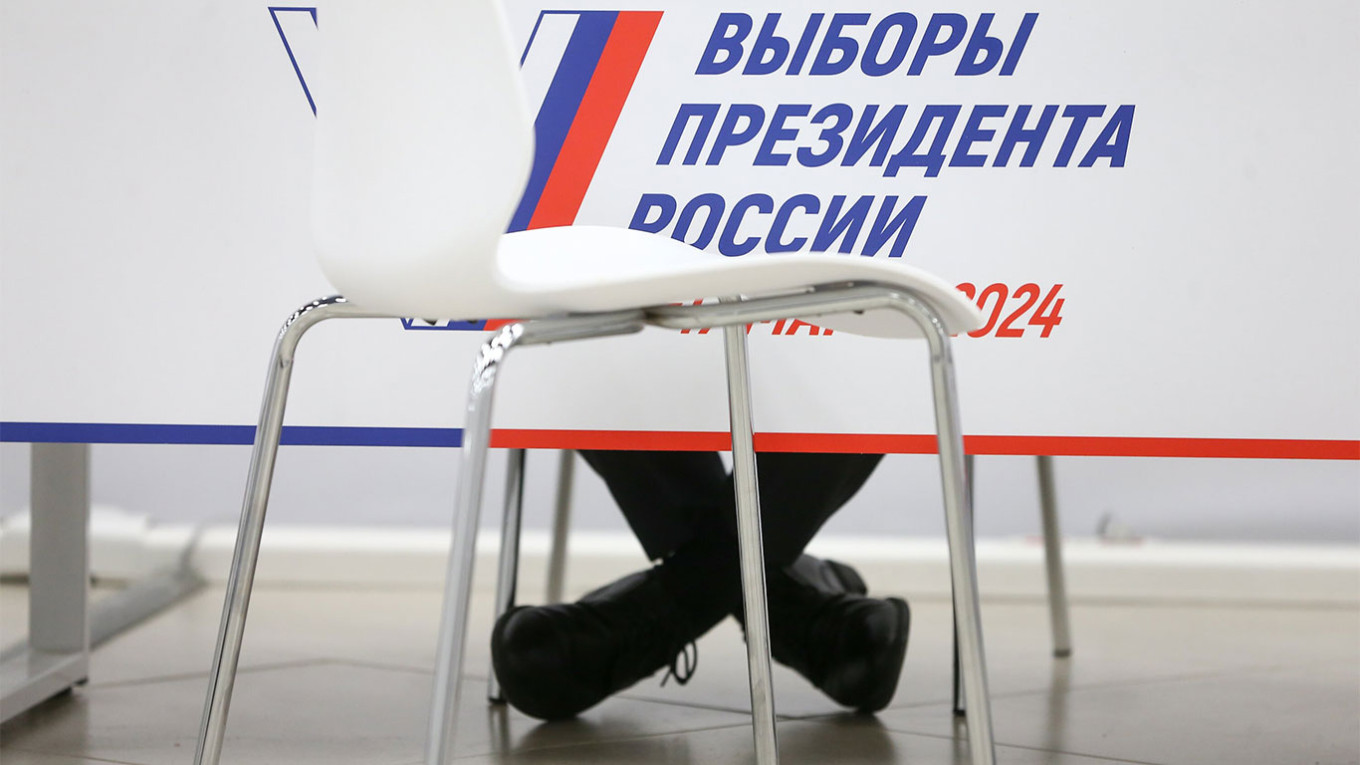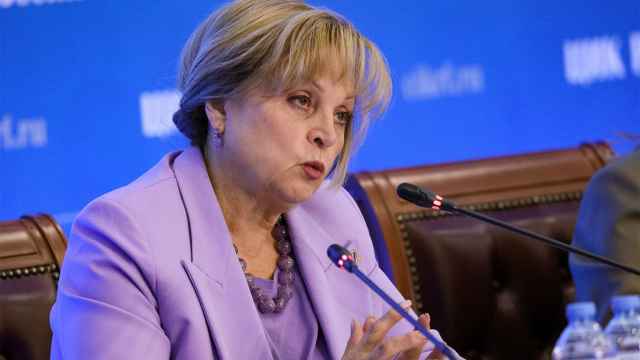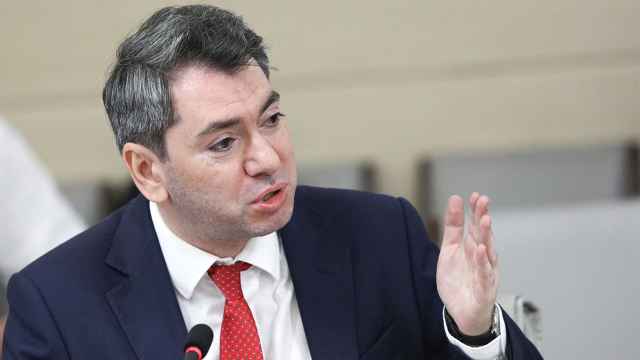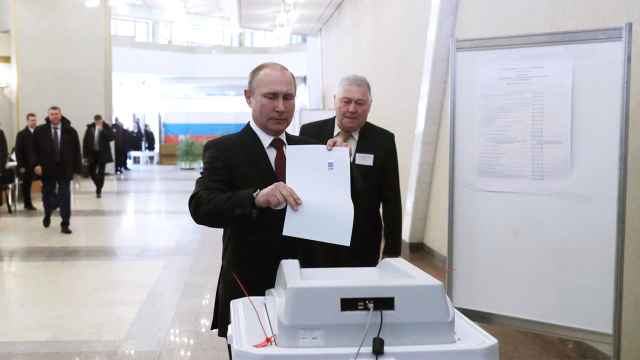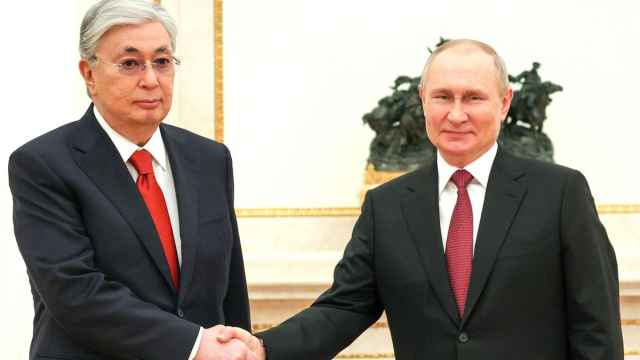Independent election watchdog Golos has called Russia’s March 15-17 presidential election an “imitation,” with widespread reports of vote tampering, restrictions on monitors and pressure on voters, according to a report published by the organization on Monday.
Golos said Russian authorities sought to “imitate” all key aspects of a democratic electoral process during the three-day voting period, from the participation of multiple candidates in the race to the presence of international observers at polling places.
But “never before have we seen a presidential campaign that fell so short of constitutional standards,” the watchdog said, noting a gradual weakening of voters’ rights in Russia “almost every year” over the past two decades.
The Moscow Times has gathered the main takeaways from Golos’ report on the 2024 presidential election, which wrapped up on Sunday and saw President Vladimir Putin clinch a fifth overall term in office.
Election law tweaking
Since Russia’s last presidential election in 2018, the authorities have adopted more than 11 amendments to the country’s election laws aimed at “limiting the voting rights of citizens” and “reducing opportunities for public oversight,” according to Golos.
Among those changes, it singled out the 2020 constitutional amendments as the most harmful, as they allowed Putin to reset his term count and remain in power until 2036.
At the same time, Golos said the introduction of multiday and online voting in recent years has made it much more difficult for independent monitoring of the voting process, all the while making electoral fraud easier.
So, too, has Russia’s law on “foreign agents” — which has impacted hundreds of NGOs, news outlets, journalists, activists and cultural figures — marred elections by limiting their ability to take part in political life.
Forced voting
Voters were subjected to “unprecedented pressure” during this year’s presidential election as the Kremlin sought to achieve a record turnout.
Golos said it received reports of citizens being coerced into voting from at least 60 regions across Russia, mostly among public sector workers, employees of state-linked corporations, as well as workers at some private businesses.
Information obtained by the watchdog indicates that state-linked entities in Moscow were provided lists of employees who cast their ballots online.
Restrictions on independent monitors
The 2024 presidential race was the first in Russia’s history to take place without the presence of OSCE election monitors. Instead, the Russian authorities invited handpicked “international election experts” whose credibility was suspect.
In several Russian regions, candidates and the parties they represent refused to register their own independent observers, while in some areas authorities moved to recall observers’ registration after the start of the voting period, according to Golos.
Some independent electoral observers were removed from polling stations by force and subjected to searches and detentions, while those permitted to stay were barred from moving around polling locations, as well as from taking photos and recording videos of suspected irregularities.
Mass vote rigging
Golos received reports of voting irregularities from 45 regions, according to Monday’s report. Among the irregularities identified by the watchdog were ballot stuffing, “carousel voting” and the improper storage of ballots overnight.
Fraudulent votes amounted to at least 31.6 million — or nearly half of all ballots cast for Vladimir Putin — according to estimates by Novaya Gazeta Europe.
Violence at polling stations
Golos said the March 15-17 election was “characterized by unprecedented levels of violence and emotional tension.”
Following multiple reports of dye-spilling incidents and arson attacks at polling places, Russian officials increased the presence of law enforcement at voting stations.
In Moscow, as well as the Irkutsk region and the republic of Udmurtiya, voting booths were dismantled at some polling stations and police were reportedly spying on voters’ ballots, according to Golos.
At least 22 people were arrested over attempts to spoil ballots with dye, while 12 others were detained for trying to set polling stations and individual ballot boxes on fire, according to Golos.
“Golos definitively condemns these practices, which obstruct the [voting] results... and violate the voting rights of citizens. No political or personal motives can justify such actions on the part of voters,” the watchdog said.
A Message from The Moscow Times:
Dear readers,
We are facing unprecedented challenges. Russia's Prosecutor General's Office has designated The Moscow Times as an "undesirable" organization, criminalizing our work and putting our staff at risk of prosecution. This follows our earlier unjust labeling as a "foreign agent."
These actions are direct attempts to silence independent journalism in Russia. The authorities claim our work "discredits the decisions of the Russian leadership." We see things differently: we strive to provide accurate, unbiased reporting on Russia.
We, the journalists of The Moscow Times, refuse to be silenced. But to continue our work, we need your help.
Your support, no matter how small, makes a world of difference. If you can, please support us monthly starting from just $2. It's quick to set up, and every contribution makes a significant impact.
By supporting The Moscow Times, you're defending open, independent journalism in the face of repression. Thank you for standing with us.
Remind me later.


